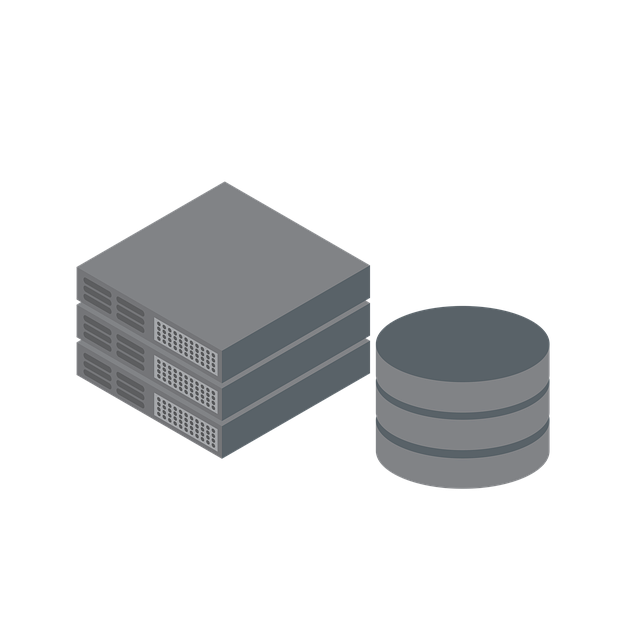Hosted accounting systems like Sage MSP and QuickBooks multi-user IT offer cloud-based solutions for efficient financial operations, enhancing collaboration and data access. Integrated with robust IT infrastructure and Managed Service Providers (MSPs), these systems ensure seamless data flows, minimize manual entries, and improve decision-making. A well-managed IT infrastructure, including powerful servers and secure storage, is crucial for optimal performance. MSPs specialize in accounting software integration, handling high transaction volumes and protecting sensitive financial details. Integration provides real-time data synchronization, eliminating manual transfers, and enhancing security through encryption and regular backups, aligning with regulations like GDPR and CCPA. This enables efficient automation, improved resource allocation, and a competitive edge in today's digital landscape.
In today’s digital era, seamless integration of accounting software with IT infrastructure is crucial for efficient business operations. This article explores the transformative power of hosted accounting systems and how Managed Service Providers (MSPs) facilitate their smooth integration. We delve into the importance of a robust IT foundation, MSP support, and the myriad benefits of seamless integration, including enhanced data security, compliance, and automation. Understanding these key aspects can revolutionize your business’s financial management.
- Understanding Hosted Accounting Systems' Potential
- IT Infrastructure: A Foundation for Integration
- Managed Service Providers: Expert MSP Support
- Seamless Integration: Benefits and Best Practices
- Data Security and Compliance in Mind
- Optimizing Operations with Efficient Automation
Understanding Hosted Accounting Systems' Potential

Hosted accounting systems offer significant advantages for businesses looking to streamline their financial operations. By utilizing cloud-based solutions like Sage accounting MSP or QuickBooks multi-user IT, companies can access real-time data and enhance collaboration among teams. This not only improves efficiency but also reduces the reliance on on-premise hardware, translating to cost savings in terms of maintenance and upgrades.
The integration of hosted accounting systems with robust IT infrastructure, often facilitated by managed service providers (MSPs), ensures a seamless experience. Accounting ERP integration allows for automated data flows between financial management tools and other business applications, eliminating manual data entry and minimizing errors. This level of connectivity empowers businesses to make informed decisions based on accurate, up-to-date financial information.
IT Infrastructure: A Foundation for Integration

A robust and well-managed IT infrastructure serves as the bedrock for seamless integration of accounting software. In today’s digital era, businesses increasingly rely on hosted accounting systems to streamline financial operations. These cloud-based solutions, such as hosted Peachtree or Sage accounting MSP, offer accessibility and real-time data synchronization across various platforms. However, for a smooth implementation, it’s crucial that the IT infrastructure supports these multi-user QuickBooks environments effectively.
A strategically designed network architecture, including robust servers, reliable internet connectivity, and secure data storage solutions, is essential. Additionally, leveraging the expertise of a managed service provider (MSP) specializing in accounting software integration ensures that the technical foundations are in place to handle high transaction volumes, maintain data integrity, and safeguard sensitive financial information. A Sage accounting MSP or QuickBooks multi-user IT support team can optimize these hosted systems, ensuring they function seamlessly within your existing IT infrastructure.
Managed Service Providers: Expert MSP Support

Managed Service Providers (MSPs) play a pivotal role in ensuring seamless integration of hosted accounting systems with an organization’s IT infrastructure. These expert service providers offer specialized support, enabling businesses to leverage the full potential of their accounting software. By providing MSP support, companies can streamline their financial management processes and gain access to advanced features that enhance efficiency.
MSPs facilitate the configuration of CPA tools, ensuring optimal settings for QuickBooks multi-user IT environments or Sage accounting systems. Their expertise in IT infrastructure management allows them to address any technical challenges, resulting in a robust and secure system. This support is particularly valuable for small and medium-sized businesses (SMBs) that may lack internal IT resources, enabling them to focus on core business activities while ensuring their accounting software operates at peak performance.
Seamless Integration: Benefits and Best Practices

Seamless integration between accounting software and a company’s IT infrastructure is a game-changer for many businesses. It streamlines financial management by enabling real-time data synchronization, eliminating manual data transfers that are prone to errors. This results in improved accuracy, enhanced decision-making capabilities, and better resource allocation. Hosted accounting systems, for instance, offer significant advantages such as cloud-based accessibility from anywhere at any time, robust security protocols, and scalability tailored to business growth.
Best practices for achieving this integration involve strategic planning, choosing the right hosted accounting system, and leveraging Managed Service Providers (MSP) for expert configuration and ongoing support. MSPs provide invaluable assistance in setting up intuit integrations, ensuring data integrity during backup QuickBooks procedures, and offering round-the-clock monitoring to prevent disruptions. By adopting these practices, businesses can not only implement their CPA tools effectively but also foster a robust, secure, and efficient financial management ecosystem.
Data Security and Compliance in Mind

When integrating accounting software with IT infrastructure, data security and compliance should always be at the forefront of considerations. Hosted accounting systems, such as Peachtree or Sage, offer robust security features that protect sensitive financial information from unauthorized access. With Managed Service Providers (MSPs) supporting the configuration of CPA tools, organizations can ensure their data is encrypted, backed up regularly, and stored in secure cloud environments.
This approach aligns with industry regulations like GDPR and CCPA, ensuring compliance for businesses using hosted Peachtree or Sage accounting MSP solutions. By leveraging MSP expertise in data management and security, companies gain peace of mind knowing their financial records are safe, accessible only to authorized personnel, and meeting all necessary legal standards.
Optimizing Operations with Efficient Automation

In today’s digital age, optimizing operations through efficient automation is key to staying competitive. By integrating hosted accounting systems with robust IT infrastructure support from Managed Service Providers (MSPs), businesses can achieve seamless data syncing and real-time updates across all departments. This ensures that financial information flows smoothly and accurately, empowering CPAs to make informed decisions quickly.
Such integration goes beyond mere data sharing; it facilitates a cohesive accounting ERP integration where backup QuickBooks or other software becomes more than just a safety net. It transforms into a powerful tool for streamlining workflows, enhancing productivity, and reducing human error. This, in turn, leads to improved financial management, better resource allocation, and ultimately, a competitive edge in the market.
